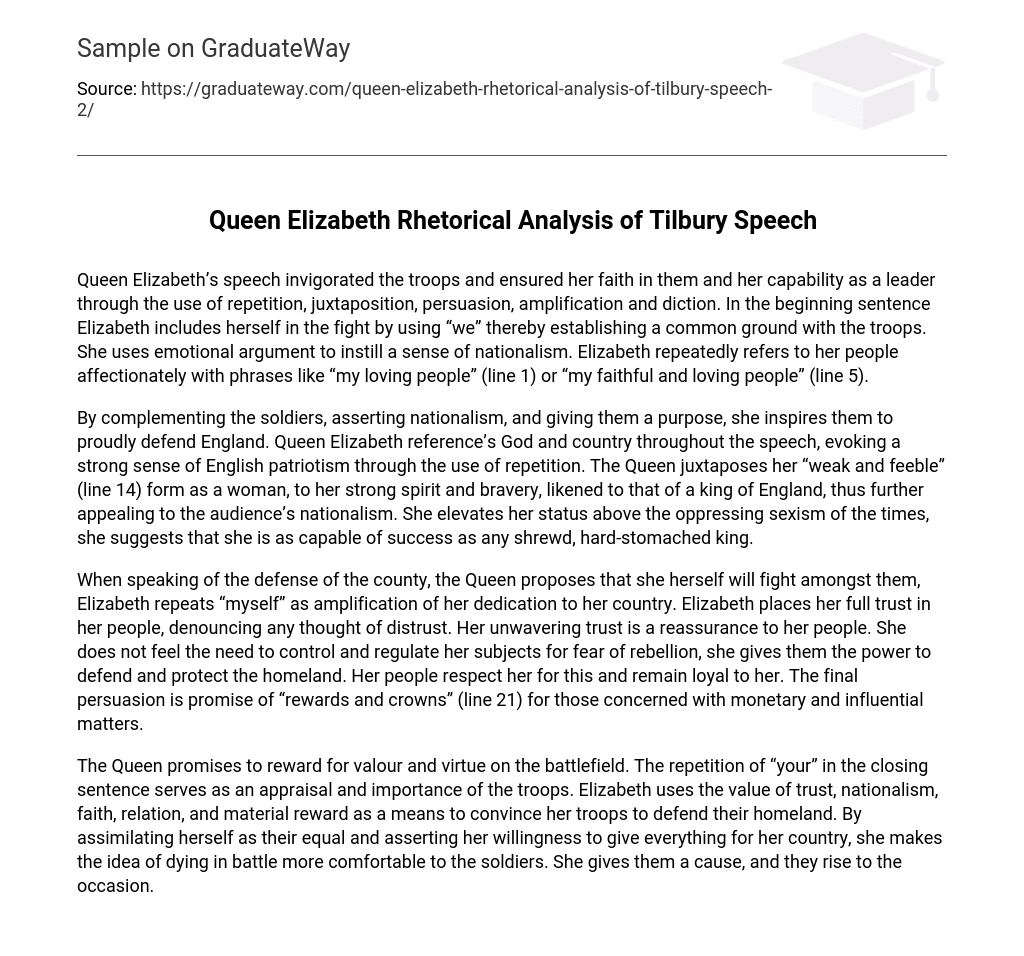Queen Elizabeth’s speech motivated and reassured the soldiers, demonstrating her belief in them and her leadership skills through the employment of repetition, juxtaposition, persuasion, amplification, and diction. By utilizing the pronoun “we” in the opening statement, Elizabeth aligns herself with the troops, establishing a shared purpose. She appeals to their emotions, instilling a sense of national pride. Elizabeth fondly addresses her subjects multiple times with phrases such as “my loving people” (line 1) or “my faithful and loving people” (line 5).
Queen Elizabeth inspires soldiers to defend England by complimenting them, asserting nationalism, and giving them a purpose. She repeatedly references God and country throughout her speech, instilling a strong sense of English patriotism in her audience. The Queen contrasts her physical weakness as a woman with her strong spirit and bravery, aligning herself with the kings of England and appealing to the audience’s nationalism. She elevates her own status above the prevailing sexism of the era, asserting that she is just as capable of success as any wise and resilient king.
When it comes to defending the country, the Queen expresses her intention to fight alongside her people. Elizabeth emphasizes her dedication to her country by repeating the word “myself”. She fully trusts her people and rejects any notion of distrust. Her unwavering trust serves as reassurance to her people. She does not feel the need to exert control over her subjects out of fear of rebellion; instead, she grants them the power to defend and safeguard their homeland. Her people admire and remain loyal to her because of this. The final persuasive tactic is the promise of rewards and crowns for those who are concerned with matters of wealth and influence (line 21).
The Queen pledges to reward bravery and virtue in war. The repeated use of “your” in the final sentence emphasizes the troops’ worth and significance. Elizabeth utilizes trust, patriotism, faith, connection, and tangible rewards to persuade her soldiers to protect their homeland. By positioning herself as their equal and expressing her readiness to sacrifice everything for their country, she eases the soldiers’ acceptance of the possibility of dying in battle. She provides them with a purpose, and they respond with determination.





